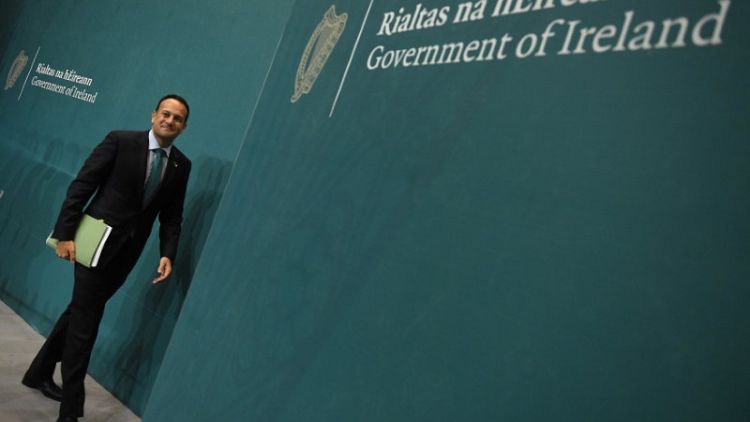By Padraic Halpin and Conor Humphries
DUBLIN (Reuters) - Ireland's fiscal watchdog ruled on Wednesday that the government's budget plans for 2019 were counter to prudent economic management, its strongest warning for years that some of the policy mistakes of the recent past were being repeated.
The Irish Fiscal Advisory Council, set up in response to the years of reckless spending that left the Irish exchequer hugely exposed when the 2008 financial crisis hit, had assessed prior to the delivery of the budget last month that the spending and tax plans were sound.
However, a significant unbudgeted increase in spending this year changed that view and the Council warned on Wednesday that repeated failures to prevent such increases within a given year had left the public finances more exposed to adverse shocks, including the potential impact of Brexit.
"We are seeing budget plans that aren't being carried through on, we are seeing spending based on revenue sources that may not turn out to be permanent and we don't have a clear and credible medium term fiscal plan set out," Seamus Coffey, chair of the Irish Fiscal Advisory Council, told journalists.
"There are echoes of policy mistakes of the past. There is no doubt about that."
In its biannual fiscal assessment report, the Council said budget plans for 2019 were built on an "imprudent" increase in spending in 2018 and budget overruns had become habitual.
Failures to prevent unplanned spending increases have meant long-lasting increases in spending that are difficult to reverse, it said. The dependence on windfall corporate tax receipts from foreign multinationals had echoes of the dependence on real estate stamp duty in 2006, it said.
The Council is mandated to assess whether the government's fiscal stance each year is prudent but the ultimate arbitrator on budgetary matters is the European Commission, which last week ruled that the budget was compliant with EU fiscal rules.
Coffey said the Commission had a narrower remit that only looked at forecasts for 2019. The fiscal Council, he said, was looking at the medium term and taking into account spending overruns considered likely next year.
"Medium-term budget plans are not credible and previous medium-term objectives have been effectively dropped," he said.
The government intends to balance the books for the first time in more than a decade next year, however the Council estimated that a surplus would have been achieved much earlier had the unplanned spending drift not occurred since 2015.
It said Dublin had wasted opportunities to cut a debt ratio that still stands out as the fifth highest among OECD countries, when applying the new, more reliable, Irish measure of Modified Gross National Income or "GNI*".
"It wouldn't take a significant shock to have the debt ratio stop falling or even begin to increase," Coffey said. "We feel we could and should be in a stronger position."
(Reporting by Padraic Halpin and Conor Humphries; Editing by Robin Pomeroy)



